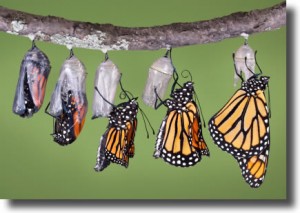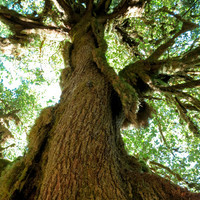 The Columbia City Yoga on-line Moving into Meditation class met this morning. We brought tenderness to our mindfulness practice. Recalling our good childhood memories is a way of self soothing and reducing stress. Our good memories are an inner resource we can draw on in times of difficulty. Our mindfulness practice can help us to pause at the threshold of conflict to consider our intentions and what will best serve understanding.
The Columbia City Yoga on-line Moving into Meditation class met this morning. We brought tenderness to our mindfulness practice. Recalling our good childhood memories is a way of self soothing and reducing stress. Our good memories are an inner resource we can draw on in times of difficulty. Our mindfulness practice can help us to pause at the threshold of conflict to consider our intentions and what will best serve understanding.
We were inspired by the Greater Good Science Center program, Are You Remembering the Good Times? Palestinian-American poet Naomi Shihab Nye shared her insights after recalling her good childhood memories. Studies have shown this practice to reduce stress and uplift our mood. Naomi’s recent experience prompted her to wonder how we can nurture ourselves and one another.
We heard We heard Naomi Shihab Nye’s poem, Small Basket of Happiness. Naomi reminds us of how our loved ones’ loving awakens in those moments when we tenderly bend and listen.
 We heard naturalist, writer and educator J. Drew Langham’s poem, Joy Is the Justice We Give Ourselves. You can learn more about poet, professor and writer J. Drew Lantham by listening to his On Being interview with Krista Tippett: Pathfinding Through the Improbable. Check out his memoir The Home Place: Memoirs of a Colored Man’s Love Affair with Nature at your local library.
We heard naturalist, writer and educator J. Drew Langham’s poem, Joy Is the Justice We Give Ourselves. You can learn more about poet, professor and writer J. Drew Lantham by listening to his On Being interview with Krista Tippett: Pathfinding Through the Improbable. Check out his memoir The Home Place: Memoirs of a Colored Man’s Love Affair with Nature at your local library.
Welcome. Last week’s class was inspired by the poet Louise Gluck’s questions: “Why love what you will lose?” and “What else is there to love?” We explored how life’s impermanence and uncertainty can invite us into a relationship with the world beyond the self. In realizing inter-being we can know that to heal the world is to heal the self.
For me healing the world and myself is about social connection. I had two insights this week. The first involves rekindling of closeness with two of my cousins. We’ve been sharing concerns about threats to our democracy and its institutions; social, racial and economic justice and our healthcare systems. We all care deeply about the most vulnerable in our society.
We found ourselves sending each other one catastrophic news story after another. Finally, my cousin Lisa said: “I think we all need a rest from . . . sharing depressing articles. I’m going to unplug for a while. . . . Let’s turn Mother’s Day into Mother’s Month!” Wow. After reading this I felt lighter in my body. I could breathe more easily.
 A few hours later I heard a beautiful program from UC Berkeley’s Greater Good Society. The program focused on the studies that show how thinking about positive memories can support us with coping skills and our response to acute stress. The producers of the show asked Youth Poet Laureate Naomi Shihab Nye to try a practice where she wrote about her own good memories every day for one week, with a focus on her childhood.
A few hours later I heard a beautiful program from UC Berkeley’s Greater Good Society. The program focused on the studies that show how thinking about positive memories can support us with coping skills and our response to acute stress. The producers of the show asked Youth Poet Laureate Naomi Shihab Nye to try a practice where she wrote about her own good memories every day for one week, with a focus on her childhood.
She recalled when her family had just moved to Texas. Her high school art teacher asked students to choose a word that they would explore in class for the whole year. Naomi chose the word “simple.” The class became magical. The words inspired their different art projects. Students began to know each other through their chosen words. Naomi shared that she hadn’t meditated on the word in a very long time. The world just didn’t feel simple.
 Naomi shared that recalling this memory this week yielded some insights. She said:
Naomi shared that recalling this memory this week yielded some insights. She said:
. . . meditating on that word again made me think, “Well, who says I have to look at an inbox every single day? So what if I don’t answer those people for a few days? I’m not even looking at it.” And that was helpful. Just that feeling of, “Why do I have to turn on my phone just because I woke up? Maybe I won’t turn it on until noon today.” And so, it was a change, you know?
When asked how those memories affect her sense of self today, Naomi reflected:
. . . I think when we’re children, if we’re lucky, if we have involved caring parents and mine for all their . . . unique and wondrous habits and propensities, we’re always caring. I never doubted for one moment that they loved us. That’s a precious thing. And then, you know, you’re an old person and everybody who cared for you, parent-wise, or grandparent-wise, they’ve all died. And so the nurturing is up to you and . . . your partner if you’re lucky, or your friends if you’re lucky.
And so, “How do we nurture one another?” That was a question I really thought about during this practice. And, “How did I feel nurtured as a child that now, as an adult, we’re required to do it for ourselves?”
I think this is a question worth living with – a living question.
 Our practice is a quiet, still gift we give ourselves when we bring our whole hearted presence to this moment. Like the poem, Small Basket of Happiness, gifted by Naomi Shihab Nye:
Our practice is a quiet, still gift we give ourselves when we bring our whole hearted presence to this moment. Like the poem, Small Basket of Happiness, gifted by Naomi Shihab Nye:
Listen
It would never call your name.
But it would be waiting somewhere close,
perhaps under a crushed leaf
turned from pale green to gold
with no fanfare.
You hadn’t noticed
the gathered hush
of a season’s tipping.
Shadows flowing past
before any light came up,
people whom only a few
might remember,
so much accompaniment
inside a single breeze.
All whom we loved.
In the quiet air lived
the happiness they had given.
And would still give, if only.
You would slow down a minute.
You would bend.
 It is these people, “All whom we loved” she invites us to recall, and the happiness they had given. Not only that they gave us happiness, but would still give, if only. If only, “You would slow down a minute.” If only you would bend toward the happiness that is waiting for you. Perhaps this slowing down is how we nurture ourselves. Bending toward the beauty and the pain of others, the world – the way we nurture each other.
It is these people, “All whom we loved” she invites us to recall, and the happiness they had given. Not only that they gave us happiness, but would still give, if only. If only, “You would slow down a minute.” If only you would bend toward the happiness that is waiting for you. Perhaps this slowing down is how we nurture ourselves. Bending toward the beauty and the pain of others, the world – the way we nurture each other.
Let’s bring open minds and listening hearts to this moment of being alive. Let’s start our practice by feeling our bodies and Earth’s support. You can take a few slow deep breaths. You might roll your shoulders or stretch your neck a bit. Rock your body from side to side to find center. Feel your body. Let its weight and heaviness bring awareness more fully into the present. Relax whatever you can: the muscles of your jaw, brow and lips. Allow breath or sensation to come to your awareness. Sense subtle movement, pulsation, coolness or warmth, firmness or softness. Follow how body expressions naturally arise.
 You can let this awareness of your body be in the background. Begin to explore what surfaces in your heart: joy, sorrow, anger, contentment, sadness, delight, vulnerability. Perhaps an unnameable tone. Whatever you notice, allow it to simply be. Can there be a sense of tenderness in meeting feeling? Even if it’s just a seed of tenderness allow yourself to receive that feeling. You might recall a childhood memory of joy, laughter, love. It may be a moment of being recognized, feeling truly heard. Recall where you were, who you were with, what you were doing. How did this experience feel in your body? I invite you to breathe, feel and savor these memories.
You can let this awareness of your body be in the background. Begin to explore what surfaces in your heart: joy, sorrow, anger, contentment, sadness, delight, vulnerability. Perhaps an unnameable tone. Whatever you notice, allow it to simply be. Can there be a sense of tenderness in meeting feeling? Even if it’s just a seed of tenderness allow yourself to receive that feeling. You might recall a childhood memory of joy, laughter, love. It may be a moment of being recognized, feeling truly heard. Recall where you were, who you were with, what you were doing. How did this experience feel in your body? I invite you to breathe, feel and savor these memories.
In tending to ourselves or an other, we experience our part of Life’s great constellation. In moments of difficulty we can recall our lived experiences of being cared for and caring for others.
And how magical it is to call forth memories of those we have loved and savor the gifts we shared together. Explore how it feels to affirm and to savor the goodness of life – even during our difficult times. Our memories live in our bodies and continue to touch other bodies across time: the young ones and those who are yet to be born.
Naomi asks us to tenderly bend. When we make ourselves available to receive that which has been given we can deepen our relationships. And at times it can be a challenge to keep our hearts open. In tender listening we become vulnerable. In open hearted presence – we might learn the true heart of another. Even in the face of difficulty, misunderstanding, pain and the unknown we can pause. Sometimes this means stepping away from conflict long enough to find compassion; to recall those memories of love and joy.
 Sometimes this means reading or even speaking naturalist poet Drew Lanham’s beautiful poem, Joy Is the Justice We Give Ourselves:
Sometimes this means reading or even speaking naturalist poet Drew Lanham’s beautiful poem, Joy Is the Justice We Give Ourselves:
Joy is the justice
we give ourselves.
It is Maya’s caged bird
sung free past the prison bars,
holding spirits bound—
without due process,
without just cause.
Joy is the steady run stream,
rights sprung up
through moss-soft ground—
water seeping sweet,
equality made clear
from sea
to shining sea,
north to south,
west to east.
…
Joy is the silent spring,
unquiet.
Rachel’s world not come to pass.
The season
dripping ripe full
of wood thrush song.
Joy is all the Black birds,
flocked together,
too many to count,
too many to name,
every one different
from the next,
swirling in singularity
across amber-purpled sky.
Joy is being loved
up close
for who we are.
…
Joy is the gift,
just desserts,
what we deserve
without asking
or constant demands—
the comfort that comes
when no one else
really cares.
Joy is the reward,
the salary already earned—
back pay
with four centuries’ interest
compounded daily.
At least eighty acres—
and two mules.
Joy is the day off,
just because.
…
Joy is what was meant to be.
The mystery of impossibility happening.
The assurance of uncertainty.
Joy is my seeking.
Your being.
It is mine for the taking.
Ours to share.
More than enough to go around,
when it seems nowhere to be found.
Have yourself a heapin’ serving.
Have seconds. Or thirds.
‘Cause
joy is the justice
we give ourselves.

